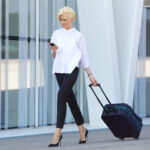Introducing Angola
About Angola
Its name may be synonymous with strife, but since the civil war ended in 2002 Angola has been enjoying something of a renaissance. Safe and welcoming, this friendly nation transports the laidback, community-orientated lifestyle of southern Portugal to continental Africa – and travellers are once again discovering its charms.
Most enter the country via the capital, Luanda, which has the dubious and surprising distinction of being the most expensive city in the world. With its gleaming skyscrapers, grand government buildings and palm-lined promenades, downtown Luanda’s prosperity probably comes as a revelation to many visitors. But the spoils of Angola’s considerable oil wealth soon give way to unofficial shantytowns, proving that not everyone is benefitting from the black gold rush.
It is along Angola’s stunning 1,700 km (1,000 mile) coastline, in cities like Luanda, where Portugal’s colonial influences are most striking. The faded, art deco splendour of cities like Benguela and Namibe provide a welcome distraction from the country’s sandy shores.
Further inland, the landscape becomes one of almost endless plains. Here remote national parks are slowly being restocked with wildlife, while the newly renovated Benguela railway wends through the seemingly endless countryside. One of the world’s most evocative rail journeys, riding through the landscape with its people is a great way to delve into the psyche of laughter loving Angolans.
To the north – and separated from the rest of Angola by a 40 km (25 mile) arm of the Democratic Republic of Congo – the exclave of Cabinda is Angola in miniature, with empty beaches once popular with expats, elegant towns and virgin rainforest full of wildlife.
Youthful and energetic, Angola, like its people, has its own way of doing things. Fun-loving and eager to impress, it is a country still shaking off its troubled past while looking firmly at the future.
History of Angola
Much of the land occupied by present day Angola was part of the Kingdom of Kongo, which rose to prominence in the 14th century. It was flourishing a century later, when Portuguese explorers reached the country and set up their first trading post at Soyo in the far north of the country.
Relations between the Europeans and the Kongo kings were good, allowing the foundation of Luanda by Paulo Dias de Novias with one hundred settler families and 400 soldiers in 1575.
The kings’ sons were sent to Lisbon for education until the 17th century, after which the transatlantic slave trade soured trust between the two kingdoms. An estimated one million slaves were shipped to Portuguese Brazil between the 16th and 17th centuries from Angola.
The formal abolition of the transatlantic trade in 1836, following Brazilian
independence, resulted in the Portuguese intensifying colonisation of its other territories, including Angola. Slavery in Portuguese colonies continued officially until the 1870s and thereafter, barely disguised, until the early 20th century.
It was not until the fascist government took power in Lisbon in 1926 that Portuguese rule was further consolidated with the administrative control of Angola’s interior, even despite earlier territorial claims and the importance of the Angolan coast to the Portuguese economy.
Opposition to colonisation remained relatively muted until the 1950s. The war for independence erupted in 1961, and didn’t end until Portugal’s Marcelo Caetano regime was overthrown in a coup d’etat in 1974.
However, instead of unification, independence the following year led to an enhancement of the divisions between different liberation movements, laying the foundations for a civil war that consumed Angola for almost three decades.
The half a million Portuguese citizens that had remained in Angola through the independence struggles finally threw in their lot and returned to Europe, creating a massive skills shortage and leaving a country rich in resources struggling with bankruptcy. A ceasefire in 2002 finally stabilised the country, permitting democratic elections.
Did you know?
- President Jose Eduardo dos Santos has led Angola since 1979, making him one of the longest serving leaders anywhere in the
- The name Angola derives from the word ingolas, meaning king.
- The country’s first president, Agostinho Neto, was awarded the Soviet Union’s Lenin Peace Prize for 1975-76, despite the outbreak of the Angolan Civil
Angola Culture
Religion in Angola
Roman Catholic (38%), Protestant (15%) and local animist beliefs (47%).
Social Conventions in Angola
Normal social courtesies should be observed. Drug trafficking or carrying incurs severe penalties. Homosexuality is illegal.
Photography: It is inadvisable to photograph public places, public buildings or public events. Copies of photography permits should be deposited with your embassy; permits should be carried at all times.
Language in Angola
The official language is Portuguese. African languages (especially Umbundu, Kimbundu, Kikongo and Bantu) are spoken by the majority of the population.
Geography & weather
Weather and climate
Best time to visit
The north of the country is hot and wet during the summer months (November to April); winters are slightly cooler and mainly dry. The south is hot throughout much of the year with a slight decrease in temperature in winter (May to October). Overall, the best time to visit Angola is from June to September when rainfall is low and days are warm and sunny.
Required clothing
Lightweight cottons and linens throughout the year in the south. Tropical clothing for summers in the north. Nights can be cold, so warm clothing should be taken. Waterproofing is advisable for the rainy season throughout the country.
Geography
Angola is bordered by the Democratic Republic of Congo to the north, Zambia to the east, Namibia to the south and the Atlantic Ocean to the west. Mountains rise from the coast, levelling to a plateau which makes up most of the country. The country is increasingly arid towards the south; the far south is on the edge of the Namib Desert. The northern plateau is thickly vegetated. Cabinda is a small enclave to the north of Angola proper, surrounded by the territories of the Democratic Republic of Congo and the Congo. The discovery of large oil deposits off the coast of the enclave has led to it becoming the center of Angola’s foreign business interests. The oil industry is based primarily at Malongo.
Business Opportunities
Lightweight suits are recommended. Many Angolan businesspeople dress casually, wearing open-neck shirts. Any dark colours can be worn for social occasions. As Portuguese is the official language, a knowledge of this is an advantage in business transactions; French and Spanish are also useful. There are limited translation services. Avoid June to September as Angolans tend to take their holidays at this time.
Office Hours
Mon-Thurs 0730-1230 and 1430-1830, Fri 1430-1730; some offices open Sat 0830-1230.
Economy
Agriculture employs over 50% of the population but production has declined so much that, from being a net exporter, Angola now imports over half its food requirements.
Fishing, which almost ceased to exist, is now being rejuvenated with foreign aid. New oil and gas fields off the shore of Cabinda (an enclave in the north of the country) are being developed. However, Angola has only one refinery and so exports most of its oil in the crude form. The only other industry of any size is diamond mining.
Angola has successfully reduced inflation from 300% in 1999 to 12% in 2007, with growth at 21%.
GDP
US$61.4 billion (2007).
Main exports
Crude oil, diamonds, gas, coffee and cotton.
Main imports
Machinery and electric equipment, food product, textiles and medicines.
Main trading partners
Portugal, Brazil, France and USA.
Keeping in Touch in Angola
Mobile Phone
Coverage limited to Luanda and the surrounding area.
Internet
There are a few Internet cafés in Luanda. Access outside of the capital is limited.
Media
Government-controlled media are predominant. Angola’s only daily newspaper, Jornal de Angola, and the terrestrial TV service, TPA, are state-owned and carry little criticism of the government. The constitution provides for freedom of expression but the government does not always respect this and the few private media outlets are liable to harassment.
Private radio stations operate in the main cities but the state maintains a monopoly in radio broadcasting across much of the country.
Post
Airmail between Europe and Angola takes five to 10 days. Surface mail between Europe and Angola takes at least two months. There is a fairly reliable internal service. Most correspondence is by telex.
Plan your trip
Angola’s Journey
Airlines offering flights to Angola include Emirates (www.emirates.com), Ethiopian Airlines (www.ethiopianairlines.com), TAAG Angola Airlines (www.taag.com.br) and TAP Portugal (www.flytap.com), among others.
Airport Guides
Luanda Quatro de Fevereiro International Airport
Code LAD
Location
The airport is 4km (2.5 miles) from the city. TelephoneAddress
Flight times
From London to Luanda -11 to 13 hours (including stopover).
Departure tax
None.
Travelling to Angola by Rail
Thanks to significant Chinese investment, the Benguela Railway has been rebuilt. This links the port of Lobito with the border town of Luau, with onward trains to the Democratic Republic of Congo and Zambia.
Driving to Angola
Overland routes to neighbouring countries are generally not open, but conditions are subject to frequent change. Driving outside Luanda is not recommended and can be risky. Travellers should contact an embassy for advice on security along their planned routes.
Getting to Angola by boat
Main ports: Lobito, Luanda, Malongo and Namibe.
Staying there
Hotels
Many hotels in Angola have air conditioning, a private bath or shower, a telephone, radio and TV. However, there is a general shortage of accommodation, and it is advisable to book well in advance (at least one month prior to departure); accommodation cannot be booked at the airport. Visitors should also note that accommodation in Luanda is expensive but the city does have many hotels. A list of hotels in Angola is provided by the Embassy (www.angola.org).
Camping
Other accomodation
Visitors are able to stay in Kissama National Park (www.kissama.org).
While you’re there
Places to see & Things to do their
Be enraptured by Kalandula falls
Witness the impressive spectacle of the Kalandula Waterfalls, one of the largest by volume anywhere in Africa. Located in the country’s north, the falls are spread along 400m (1,312ft) and fall over 100m (328ft) from forested clifftops. The views are particularly mighty at the end of the rainy season when the Lucala River that feeds them is in full flood.
Echo the actions of the early explorers
It was at Soyo that the Portuguese explorer Diogo Cao was the first European to set foot on land in what is now Angola and placed a stone padrao (or standard). Five centuries on, the padrao still stands on the tip of a beautiful peninsula which is also home to sea turtles.
Explore the coastal forts
The many forts that dot Angola’s coastline give a real sense of the country’s history as a Portuguese colony. The largest and most famous is Luanda’s Fort Sao Miguel, built in 1576 to protect the fledgling city and serve as a slave depot. It now contains the Museum of the Armed Forces.
Grab a towel and head for the beach
Palmeirinhas beach offers magnificent scenery and a long, deserted beach approximately 45 km (28 miles) south of Luanda, while in the opposite direction Santiago beach is known for its fishing. To swim, the beaches of Luanda’s Ilha peninsula are a better bet, and just five minutes from the capital’s heart.
Head out on safari
Kissama (or Quicama) National Park is currently the only functioning national park in the whole country, and is within easy reach of Luanda. Thanks to a reintroduction programme, the park is home to an increasing variety of wild animals, including elephants and the rare black palanca antelope, which can only be found in Angola.
Relax in Benguela
Less frenetic than the capital, Benguela maintains its cool colonial charm, making the most of its bay side location. The Governor’s Palace, facing the long sandy beach, is one of the best examples of colonial architecture in the country, while plenty of public spaces provide shade for taking in the sights and sounds.
Ride the rails
The newly refurbished Benguela railway follows an old trade route inland to the Democratic Republic of Congo. Comprising 67 stations and 42 bridges, it is one of the longest rail journeys in Africa, and a great way to see Angola’s hinterland while interacting with its people.
Take in the view at Tundavala Gap
To the south of Angola, close to the city of Lubango, lies Tundavala Gap. Views extend for miles from among the rim of cliffs known as the Serra da Leba escarpment, which marks the end of the Bie plateau that divides Angola into high and lowland.
Take the capital to heart
Ever improving Luanda deserves more than just a quick rest stop on arrival from the international airport. It’s the city’s atmosphere that draws you in, with a pleasant Atlantic Ocean location and historic churches and architectural gems lining almost every street of the lower city. One of the more curious attractions is the towering Mausoleum of Agostinho Neto, the country’s first president: love it or hate it, you can’t ignore it.
Understand Angola’s tragic slave past
Gain a historical understanding into Angola’s role in the Atlantic Slave Trade at the Museum of Slavery, 25 km (16 miles) along the coast from Luanda. The museum is located near a 17th-century chapel in which slaves were baptised before boarding ships for the New World.
Tourist offices
Ministry of Hotels and Tourism
Address: Largo 4 de Fevereiro, Palacio de Vidro, CP 1242, Luanda, Telephone: (2) 310 899.
Website: http://www.angola.org
Nightlife & shopping
Shopping in Angola
Traditional handicrafts are available in the main cities. Outside of these, shopping is not easy.
Shopping hours
These can vary, but are generally Mon-Fri 0900-1700.
Nightlife in Angola
There are nightclubs and cinemas in Luanda. Angolan music is a fusion of Caribbean, Brazilian and Afro sounds. Cinema seats should be booked in advance. The Lenarius, a gallery and café, is situated behind the Ministry of Defence and is open until late in the evening.
Meals & beverages
There is a noticeable Portuguese influence in Angolan cuisine, particularly in the spicy seafood, which creates a fusion between local ingredients such as cassava and non-natives like onion and garlic.
Meals generally consist of fish or meat stewed in a rich sauce with vegetables such as okra and served with rice or funge (an Angola staple that draws comparisons to polenta). At their most basic, dishes consist of funge and sauce alone.
With its long Atlantic coastline, the seafood is particularly good. Fish or shellfish including shrimp and lobster will often have been caught the same day by local fishermen.
The one downside to Angola cuisine may be the lack of restaurants, especially outside Luanda. Though new restaurants and cafes are popping up all the time, for the moment your hotel is still probably the best bet.
Specialities
Funge: Plain carbohydrate made from cassava with a texture like mash potato, generally served with a full-flavoured spicy sauce.
Calulu: Dried fish or meat layered with fresh fish or meat, onion, tomatoes, okra and sweet potato leaves.
Chicken muamba: Chicken seasoned with palm oil hash. Mufete de Cacuso: Tilapia fish seasoned with pepper and lemon. Farofa: Toasted cassava flour with a salty and smoky flavour.
Caldeirada de cabrito: Goat stew with rice traditionally served on Independence Day (Nov 11).
Frango peri-peri: Grilled chicken in a very hot chilli marinade. Feij5o de oleo de palma: Stewed beans in a palm oil sauce. Gafanhotos de palmeira: Toasted grasshopper.
Mukua: Dried fruit from the baobab tree, often used for ice cream. Kussangua: Traditional non-alcoholic drink made from cornflour.
Tipping
Where service charge is not added to the bill, 10% is acceptable, although tipping is not officially encouraged. Tipping can be in kind (e.g. cigarettes).
Drinking age
18.
Getting Around
Air
TAAG Angola Airlines (www.taag.com.br) operates flights within Angola. There are scheduled services between major towns. However, aircraft run by this airline may not be properly maintained, and travellers should aim to use flights run by reputable international organisations.
Private jets are operated by some Portuguese, French and Italian business interests (trading most notably in oil and diamonds) in the north of the country, particularly to and from the Cabinda enclave, which is only accessible by air. Sonair (www.sonair.co.ao) is recommended. Helicopter access to Cabinda is also possible. Passengers on internal flights must carry official authorisation.
Road
Car-jacking is a risk. You must carry identity papers.
Side of the road
Right
Road Quality
Driving outside of Luanda may be risky. Unexploded mines remain, driving standards are poor, and conditions are challenging. Much of the infrastructure was destroyed in the civil war, and although some roads have been rebuilt, many are still in a bad state of repair.
Car Hire
You can find international car hire companies in Luanda; hiring a car with a driver is recommended. Only use a reputable firm.
Documentation
An International Driving Permit is recommended (or translation of national licence), although, in theory, visitors may drive with a national licence for up to 30 days.
Urban travel
Local buses run in Luanda. A flat fare is charged.
Rail
Rail services are erratic, and tickets hard to purchase. Trains run on three separate routes inland from Luanda: to Malanje (daily) with short branches to Dondo and Golungo Alto; Lobito to Dilolo (the Benguela Railway, daily); and Namibe to Menongue (daily). There are no sleeping cars and no air-conditioned services, though food and drink is available on some journeys.
Before you go
Visa & Passport
| Canadian | Passport required Yes |
Return ticket required Yes |
Visa Required |
| Yes | |||
| USA | Yes | Yes | Yes |
| Other EU | Yes | Yes | Yes |
| British | Yes | Yes | Yes |
| Australian | Yes | Yes | Yes |
Passports
To enter Angola, a passport valid for at least nine months after the intended period of stay, and with two blank pages, is required by all nationals referred to in the chart above.
Visas
Visas for Angola are required by all nationals referred to in the chart above.
Nationals not referred to in the chart are advised to contact the embassy to check visa requirements for Angola.
Visa Note
Applicants for tourist visas need to provide a pre-booked itinerary. Business and short-term visa applicants require a letter of invitation.
Types and Cost
Tourist visa: £80; short-term visa: £130; business (ordinary) visa: £100. An express service is available for twice the usual fee.
Validity
Tourist and business visas: 30 days and must be used within 60 days from the date of issue.
Short-term visas: up to seven days and must be used within three days of the date of issue.
Application to
Consulate (or consular section at embassy), in person, by a third party or agency, or via registered post.
Working days
Tourist visas: eight days (standard service) or five days (express service). Short-term visas: eight days (standard service) or three days (express service). Business visas: 15 days (standard service) or eight days (express service).
Sufficient Funds
Tourist visa applicants must provide a recent bank statement showing proof of sufficient funds to cover their stay.
Extension of stay
Tourist visas can be extended once for a further 30 days. Business visas can be extended twice for 30 days each time. Short-term visas can be extended for a further seven days.
Entry with children
If travelling without one or both parents, a child must carry a notarised travel authorisation.
Our visa and passport information is updated regularly and is correct at the time of publishing,
We strongly recommend that you verify critical information unique to your trip with the relevant embassy before travel.
Embassies and tourist offices
Embassy of the Republic of Angola in the USA
Telephone: (202) 785 1156.
Website: http://www.angola.org
Address: NW, 2100-2108 16th Street, Washington, 20009, Opening times:
Mon and Wed 0900-1300, Tues and Thurs 1200-1500.
Embassy of the Republic of Angola in the UK
Telephone: (020) 7299 9850.
Website: http://www.angola.org.uk
Address: , 22 Dorset Street London, W1 U 6QY,
Opening times:
Mon-Fri 0900-1600 (embassy); Mon-Tues 0930-1130, Thurs-Fri 0930-1300 (consular section).
Corel AfterShot Pro 3
World’s Fastest RAW Photo-editing software and RAW Converter.
Healthcare
| Title Tetanus |
Special precautions Yes |
| Typhoid | Yes |
| Yellow Fever | Yes |
| Diphtheria | Yes |
| Hepatitis A | Yes |
| Rabies | Sometimes |
| Malaria | Yes |
Health Care
Full health insurance is essential and should include medical evacuation insurance. There are some hospital facilities in the main towns but, at the moment, adequate medical facilities are virtually non-existent. However, there are some good private clinics in Luanda. Medical treatment is free although often inadequate, and visitors should travel with their own supply of remedies for simple ailments such as stomach upsets, as pharmaceutical supplies are usually extremely difficult to obtain.
Food and Drink
All water should be regarded as being potentially contaminated. Water used for drinking, brushing teeth or making ice should have first been boiled or otherwise sterilised. Milk is unpasteurised and should be boiled. Powdered or tinned milk is advised. Avoid dairy products, which are likely to have been made from unboiled milk. Only eat well-cooked meat and fish. Vegetables should be cooked and fruit peeled.
Other Risks
Hepatitis E is widespread and hepatitis B is hyperendemic. Many insect-borne diseases exist all year throughout the country, including urban areas. Bilharzia (schistosomiasis) is present; avoid swimming and paddling in fresh water. Meningitis outbreaks occur. Dengue fever epidemics occur sporadically. Vaccination against tuberculosis is sometimes advised. Rabies is present. For those at high risk, vaccination before arrival should be considered. If you are bitten, seek medical advice without delay.
Holidays of Angola
Below are listed Public Holidays in Angola
New Year’s Day
01 January 2020
Martyrs of the Colonial Repression Day
04 January 2020
Start of Liberation War
04 February 2020
International Women’s Day
08 March 2020
Peace and Reconciliation Day
04 April 2020
Good Friday
10 April 2020
Easter Monday
13 April 2020
Labour Day
01 May 2020
Africa Day
25 May 2020
International Children’s Day
01 June 2020
Nation’s Founder and National Heroes Day
17 September 2020
All Soul’s Day
02 November 2020
Independence Day
11 November 2020
Christmas Day
25 December 2020
Boxing Day
26 December 2020
Duty free & Currency
Currency and Money
Currency information
Kwanza (AOA) = 100 centimos. Notes are in denominations of AOA2000, 1000, 500, 200, 100, 50, 10 and 5. Coins are in denominations of A0A5, 2, 1.
Credit cards
Credit cards are not generally accepted. American Express, Diners Club and Visa enjoy limited acceptance. Some larger hotels and resturants in Luanda have started taking credit cards.
ATM
ATMs can be found in major towns and cities, especially in me capital city of Luanda, where there are many major banks and ATM machines. However, many do not accept foreign cards so taking cash is advisable.
Travellers cheques
Traveller’s cheques are accepted.
Banking hours
Mon-Fri 0845-1600.
Currency restrictions
New regulations on currency restricions came into effect on 27 February 2012. Residents may import or export the equivalent of US$15,000 in foreign currency whilst for non-residents the limit is US$10,000. Sums over these respective limits must be declared. If you wish to re-export currency over the US$15,000 limit you will need to show your original declaration form to the customs authority at the airport. The ban on exporting Kwanzas has been lifted and in addition to dollars or foreign currency, both Angolan residents and foreigners may export up to 50,000 Kwanzas.
Currency exchange
Money should be exchanged at official bureaux de change only, which can be found throughout the country, but particularly in Luanda (changing money on the black market is illegal). US Dollars are also widely accepted. Cash withdrawal is not possible.
Angola duty free
Overview
The following items may be imported into Angola without incurring customs duty:
- 400 cigarettes or 500g of
- 2L of wine and 1L of spirits.
- 3 x 250m1 of eau de toilette or 50m1 of
- 3 phones, 1 camera and 1
- General items for personal use, gifts or souvenirs up to the value of A0A142,560 (around US$860).
Alcohol and tobacco allowances apply to travellers aged 18 and over only. You must declare brand new electronic items.
Banned Imports
Prohibited and restricted imports include goods which infringe copyright and endangered species.
Banned Exports
Prohibited and restricted exports include endangered species and items of historical, artistic and archaeological value.








